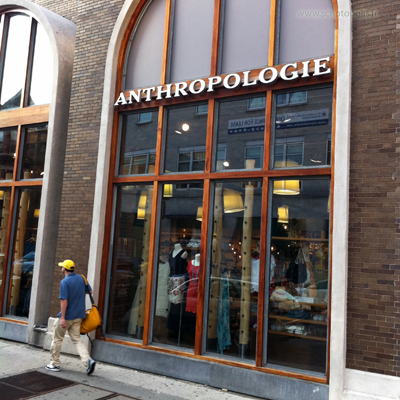Nous et eux

Boston, june 2011.
Among the various domains of scientific knowledge, anthropology is surely one that matters. It raises fundamental questions: who are human beings ? What are the structural features of human nature beyond cultural diversity? What are the main exchange regimes that rule the (re)production of any society? These questions went hand in hand with the fabulous discovery of new tribes, their particular rituals and their singular ways of life. The beauty of exoticism and the fascination for other cultures were at their height. To put it differently, those distant societies were somehow seen as the enactment of communitarian ideal.
Once back in Western countries, the “repatriated” anthropologists have started to study all sort of groups with some so-called folklore practices. Another kind of exoticism has been investigated, but anthropology progressively lost its stature. This large shop clearly shows it in its own way. Diverse products are sold, especially clothes and interior design furnitures from different countries. This shop displays the place held by anthropology in the west from now on. It became a mere site containing some objects and vestiges to be sold. Or perhaps it was always that: a means to study human beings by storing and displaying “their” objects into “our” sites of representation, a tool to emphasize human relationships by displacing objects from one place (“their” minds) to another (“our” objects of contemplation). This shop eventually recalls how much anthropology first emerged in collaboration with colonialism and missionary activities.






